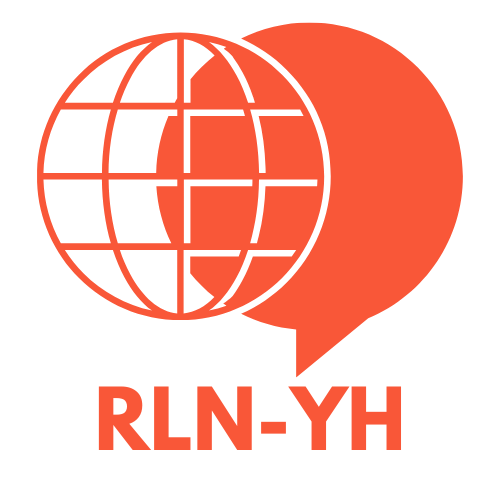Table of Contents
ToggleIn a world where your toaster might just have more tech than your first car, the Internet of Things (IoT) has become a game-changer. From smart fridges that remind you to buy milk to wearable devices that track your every step (and maybe your every snack), IoT is revolutionizing how we live and work. But with great connectivity comes great responsibility, and that’s where IoT certification struts in wearing a superhero cape.
Overview of Internet of Things Certification
Internet of Things (IoT) certification verifies proficiency in IoT technologies and applications. Various organizations provide certification programs tailored to different skill levels and industry needs. These certifications encompass essential knowledge areas, including IoT architecture, security protocols, data analytics, and cloud computing integration.
Certification ensures professionals understand best practices for deploying and managing IoT solutions. Candidates typically engage in hands-on training and theoretical learning, covering device interconnectivity and communication standards. Popular certifications include Certified Internet of Things Practitioner (CIoTP) and Cisco Certified Network Associate (CCNA) IoT, each emphasizing different aspects of IoT technologies.
Successful completion of an IoT certification program brings multiple career benefits. Certified professionals often gain a competitive advantage in the job market, finding positions in sectors such as healthcare, manufacturing, and smart home technology. Companies with certified staff frequently report increased project success rates and improved innovation through qualified expertise.
The fast pace of IoT evolution necessitates ongoing education and recertification for individuals. Staying updated with the latest technologies and practices enables professionals to address emerging challenges effectively. As the IoT landscape expands, organizations recognize the value of certifications in fostering a workforce skilled in navigating complexities and ensuring security in connected environments.
Ultimately, IoT certification contributes to responsible and efficient deployment of smart technologies, aligning with industry standards and user expectations.
Types of Internet of Things Certifications

IoT certifications span various categories, enhancing qualifications across diverse industries. These certifications focus on specialized skills and knowledge relevant to IoT implementation.
Industry-Specific Certifications
Many industries require tailored certifications to align with their unique needs. For instance, healthcare professionals might pursue the Certified Internet of Things Specialist (CIoTS) for knowledge in medical device integration. The Industrial Internet Consortium endorses certifications that cater to manufacturing and automation sectors. Telecommunications entities frequently look for candidates with the Cisco Certified Network Associate (CCNA) IoT certification, which emphasizes network connectivity and security. These industry-specific certifications ensure professionals are prepared for specific challenges, making them invaluable for career advancement in their respective fields.
General Certifications
General IoT certifications cover a broad range of foundational knowledge applicable across sectors. The Certified Internet of Things Practitioner (CIoTP) serves as an entry-level option, focusing on IoT basics, architecture, and security protocols. Additionally, the CompTIA IoT+ certification offers insights into device connectivity and data management essential for any IoT application. These certifications appeal to professionals looking to establish a well-rounded understanding of IoT concepts. A strong foundation strengthens job prospects, since firms seek candidates with adaptable skills applicable in various roles.
Importance of Internet of Things Certification
Internet of Things certification plays a crucial role in the professional landscape, ensuring that individuals are equipped with the necessary skills and knowledge to thrive in this rapidly evolving field.
Career Advancement
Certified professionals often find improved job prospects and higher salaries. Credentials like Certified Internet of Things Practitioner and Cisco Certified Network Associate IoT distinguish candidates in competitive job markets. Companies seek experienced individuals who can effectively implement and manage IoT solutions. Thus, certification becomes a pathway to leadership roles and advanced technical positions. Organizations increasingly favor certified staff, leading to greater opportunities and clearer career trajectories.
Skill Validation
IoT certification validates essential skills such as data analytics, IoT architecture, and security protocols. Employers value this validation since it demonstrates a candidate’s commitment to staying updated with industry standards. Individuals show their proficiency through hands-on training and theoretical assessments, gaining credibility among peers and employers. Certifications offer tangible proof of abilities, making applicants more appealing in diverse sectors. Furthermore, certified professionals build trust with clients and stakeholders, leading to successful project outcomes.
How to Choose the Right Certification
Choosing the right IoT certification is essential for achieving career goals and enhancing skills. Consider multiple factors when evaluating options.
Assessing Your Goals
Identify specific career aspirations first. Professionals seeking advancement in IoT may prioritize certifications that align with their desired roles, such as data analytics or network management. All individuals must understand the industry demands before selecting a program. For example, those aiming for roles in healthcare should consider the Certified Internet of Things Specialist (CIoTS), while others may find the Certified Internet of Things Practitioner (CIoTP) suitable for broader applications. Mapping out goals influences the certification path, ensuring alignment with professional objectives.
Consideration of Prerequisites
Reviewing the prerequisites is crucial for selecting an appropriate certification. Many programs require foundational knowledge in networking or programming. Checking individual requirements helps prevent enrollment in courses that are too advanced or not relevant. For instance, candidates new to IoT might benefit more from introductory certifications before tackling specialized ones. Understanding the prerequisites ensures preparedness and increases the likelihood of succeeding in the chosen certification course. Recognizing these components shapes the certification journey effectively.
Preparation for Internet of Things Certification
Preparation plays a vital role in achieving IoT certification. He or she can enhance understanding and retention of critical concepts by utilizing various study resources.
Study Resources
Books, online courses, and video tutorials provide essential foundational knowledge. Seek out reputable sources that cover IoT topics like architecture, security, and data analytics. Many organizations offer free resources, such as white papers and webinars, which can supplement learning. Consider enrolling in MOOC platforms that specialize in IoT. Engaging with communities on forums or social media can provide additional insights and peer support through shared experiences.
Practice Exams
Practice exams simulate the certification experience and familiarize candidates with question formats. Utilizing these exams helps identify strengths and weaknesses in knowledge areas. Several platforms offer practice tests tailored to specific certifications like CIoTP and CCNA IoT. Completing these assessments increases confidence and clarifies topics requiring further study. Candidates should review explanations for incorrect answers to enhance understanding of key concepts and improve performance on the actual certification tests.
Embracing IoT certification is essential for professionals looking to thrive in an increasingly connected world. By obtaining these credentials, individuals not only enhance their skill sets but also position themselves as valuable assets in their respective industries. The commitment to ongoing education and staying updated with evolving technologies ensures that certified professionals remain competitive.
As companies continue to adopt IoT solutions, the demand for certified experts will only grow. Investing in IoT certification can lead to improved job prospects and higher salaries, making it a smart choice for anyone aiming to advance their career. Ultimately, IoT certification plays a pivotal role in shaping a responsible and innovative future for smart technologies.





